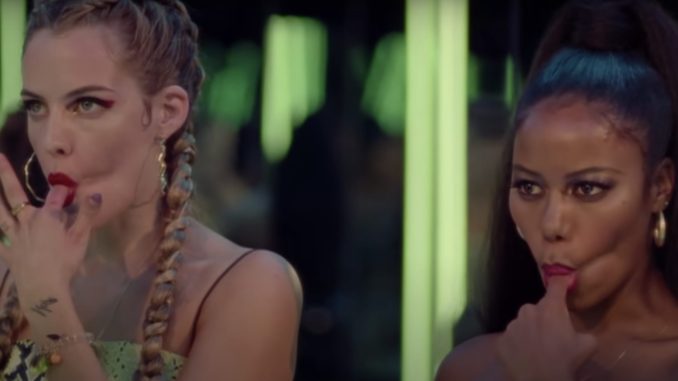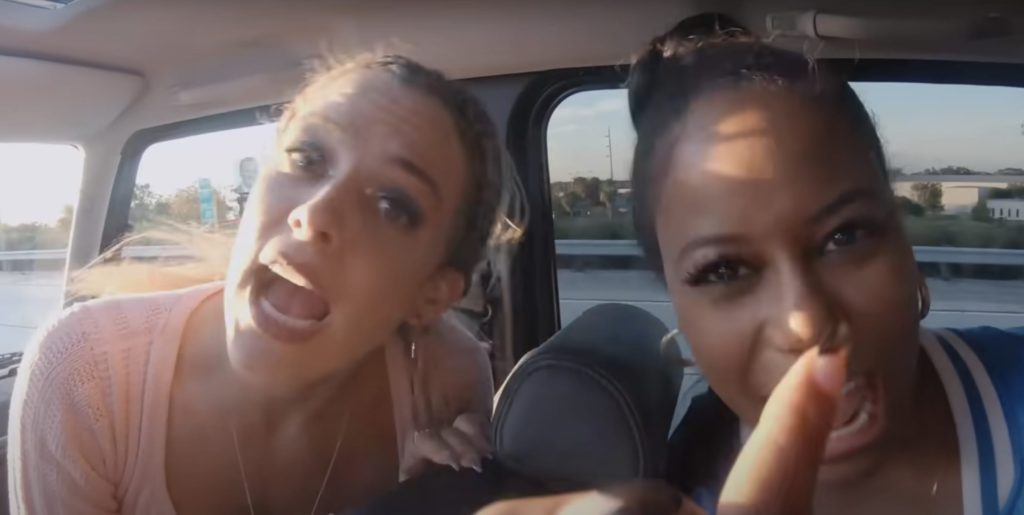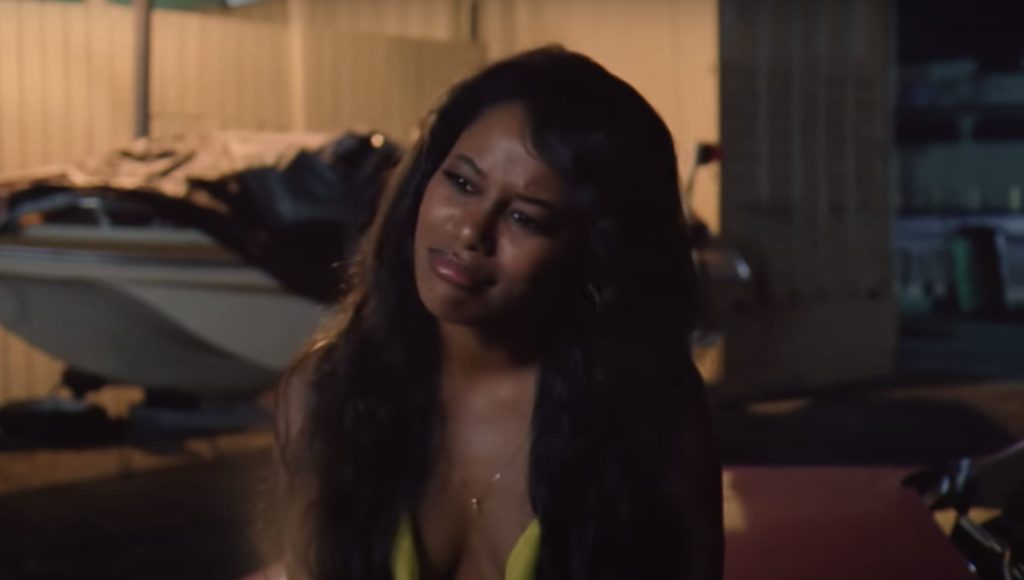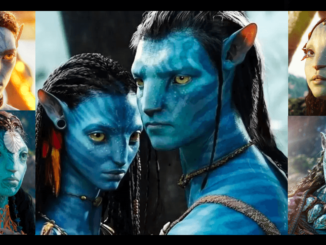
Two beautiful, stereotypically airhead women with a mission to use what they got to get what they want would seemingly be a Gen Zer’s heaven and a lusty male’s dream. Let’s take it a bit further. After spending a year hidden in the house and behind face masks, who wouldn’t want to shake off the accumulated conservative dust of bored life with a little scandal — especially women who live vicariously through courageous strippers and confident Instagram models? So, when the official trailer for A24’s Zola dropped in March, the plot seemed enticing.
Written and directed by Janicza Bravo, the story of real-life writer A’Ziah “Zola” King manifested from social media, coming to life with a convincing cast that included Taylour Paige, Riley Keough, Nicholas Braun, and Colman Domingo. We happily paid our money to buy a movie ticket because who wouldn’t want to see this young, unapologetic black and white duo take on the world together?
It started off so intriguing, peaking our interest with its ’70s style visuals, edgy dialogue, and compelling voiceovers. Satisfying every hidden desire to, for once, be a full-on thot without the judgement of society was a liberating sentiment that vibrated from the silver screen.
Zola (Paige), a waitress at a diner, was the ultimate thirst trap as she shed her day job attire to transform into the nighttime exotic dancer ready to take your husband’s money. Her chance encounter with a clearly ratchet Stefani (Keough) was the pregame before the wild adventure that ensues next. The pic did a great job of pinpointing scenarios that young women in the sex industry face. The list includes strip club culture, sex trafficking, police brutality, and toxic relationships. But, it’s not what you think.
Recalling movies of the past that tapped into the vein of Zola, these films couldn’t get away with being so explicitly liberal without attaching some kind of cautionary message to balance the judgmental scale. For instance, Ice Cube’s Player’s Club starring Lisa Raye as Diamond exploited strip club culture with the glamorization of nudity and vulgarity while offsetting the taboo subject matter with sensible explanations — Diamond needed to strip to pay for college and take care of her young son, and so forth.
The 1996 flick Strip Tease, starring Demi Moore, also justified their ’90s ratchetness with themes of single motherhood and poverty. Need another example? The 2011 Meagan Good film Video Girl explored women using their sexuality in music videos to capitalize as the protagonist falls from grace and is capsulated by substance abuse, sex work, and violence, but you better believe that the film did not end until the moral point of the story was made.

Yet, every time a point was attempted to be made in Zola, there was much left to be desired. Instead, viewers were left with fast-paced clips that lightly touched on serious topics before quickly moving on. Bottomline, the characters didn’t evolve and the story didn’t come full circle. There was no definitive moral clause or cautionary warning, at least not a blatant one. There were no real consequences for the stupid choices that the characters were making.
Zola was moreso like your girlfriend sharing a “One time in band camp…” story, just because. We never find out what happened to Zola beyond the trip ending. Did she return to stripping? Did she wise up and realize a better, safer life? Did Stefani end up losing her life because of all her shenanigans? Did the gullible boyfriend of Stefani get the medical attention he needed? So many questions, very few answers.
Zola had the potential to be an incredible storytelling experience but fell short of being an Instagram story feed. Turns out that Zola is a tease in many ways. It teases a fantasy that there could possibly be some overarching fulfillment from watching this film. That somehow, buying a ticket to a movie shining light on a historically shunned arena of society could be justified by the moral conquest of the main character.

At least, could we get some kind of resolve for the meaning behind all this foolishness or the lesson that should be learned. But, no. None of that at all. Just someone’s story, which by all means everyone deserves the right to tell their story. In fact, we loved it when it was shared in its rarest form on social media. At the end of the day, we want to see more from A’Ziah King. It’s just that maybe there was no soul in the script because the authenticity of the storyteller was railroaded by something or someone with less experience in that world.



